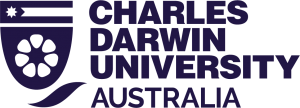Charles Darwin University’s “23 Digital Things @ CDU” is a self-directed program, facilitated by Education Strategy.
The program aims to expose you to a range of digital tools for your personal and professional development as a researcher, academic, or professional. The aim is for you to spend a little time each week, building up and expanding your skills. We hope that the program presents a real challenge and will allow you to fit it into your schedule. Charles Darwin University’s “23 Digital Things @ CDU” is inspired by 23 Things for Digital Knowledge, University of Edinburgh; 23 Things for Digital Knowledge, CSU; Rudai23 and based on the original 23 Things program which ran at the Public Library of Charlotte & Mecklenburg County in the USA in 2006. Website design with the assistance of Irawan, Charles Darwin University.
Who can take part and participate?
The program is open to all Charles Darwin University staff, and free to anyone who has access to a computer and the internet. If you are not a member of the University you are very welcome to participate and finishers will all receive a certificate of participation.
Charles Darwin University staff will have access to drop-in and training sessions on campus. The program will be supported via Twitter, email and scheduled Collaborate Ultra sessions (CDU staff only) so that no matter where you are across the globe you can contribute towards and participate in our 23 Things community.
How does the program work?
Each Thing includes an Introduction, More Detail, an Activity to try and some prompts for sharing your work. The activities are short (e.g. 30 minutes work) and are designed to encourage you to try out a new Thing or explore a Digital Thing in a new way.
What do I need to do?
This is an open and self-paced program. You can work through each Thing at your own pace and share what you have learned on your blog. We’ll help you with setting up and registering your blog as Thing 3. If you want to work through the content in the program but don’t want to blog about it that’s fine too.
At the Association for Learning Technology (ALT) they worked through the program as a team, trying out the Things and discussing it in their weekly meetings. You can read about their approach on the blog post by Maren Deepwell, CEO of ALT, here: How taking part turned into a digital habit
How you approach the content is up to you.
Is there any recognition for participation?
It is good practice to log all your professional development work and a suggested form is available. Record of evidence (Word) or Record of evidence form
No formal recognition will be awarded from this website but we recommend that your evidence form is provided as evidence should it be requested.
How long will it take?
Everyone works at their own pace. Some Things may already be familiar to you and quickly achieved, while others may be new and require more time to explore. We suggest allocating around one hour per week for each Thing.
How long do I have to complete the program?
As long as you like!
Do I have to set up a blog?
You can work through the 23 Things without setting up a blog. However, reflective and open blogging is a core part of the program. It is used to create a community of participants, to share different perspectives, uses, and understandings of the Things we will be exploring.
The blog can also be used to submit completion of the Things to be eligible for a completion certificate, and can be integrated as evidence for reflective learning for CMALT accreditation, or other Continuing Professional Development (CPD).
How do I register my blog?
We have provided a form for you to complete as part of Thing 3. This will register your blog for 23 Digital Things @ CDU.
How do I tag my blog posts?
We have provided guidance on how to do this as part of Thing 3. If you are unsure or would like further assistance contact us through Twitter at @23ThingsCDU or by emailing 23DigitalThings@cdu.edu.au.
What if I need help?
Writing and posting your questions through your blog is a great way to join in the conversation as it allows everyone following along the opportunity to answer each other’s questions and help.
You can also ask us questions on Twitter at @23ThingsCDU or by emailing 23DigitalThings@cdu.edu.au
Licensing – Can I re-use your course?
Yes! The content of this program by Charles Darwin University, except where otherwise stated, is licensed under a Creative Commons Attribution 4.0 International License (CC BY). In fact we actively encourage you to take our Digital Knowledge program and adapt it for your own purposes.
Additionally all of the excellent images used on our website were created by our own facilitators and are available on a CC BY licence, or were sourced from Unsplash (learn about Unsplash in Thing 14).
Who runs the 23 Digital Things @ CDU course?
Members of the Education Strategy team including:
Sue Tucker, VET Developer
Wendy Taleo, Learnline Developer and Trainer
